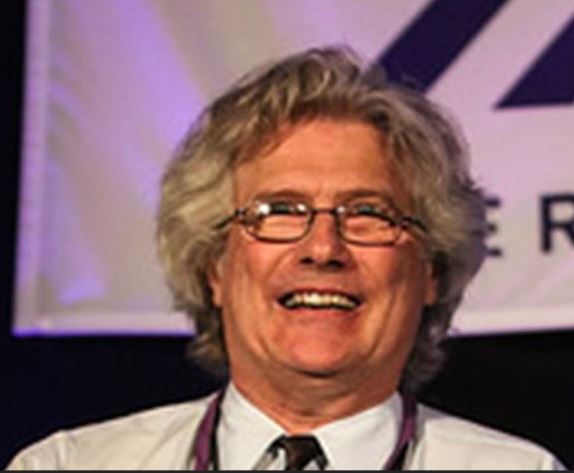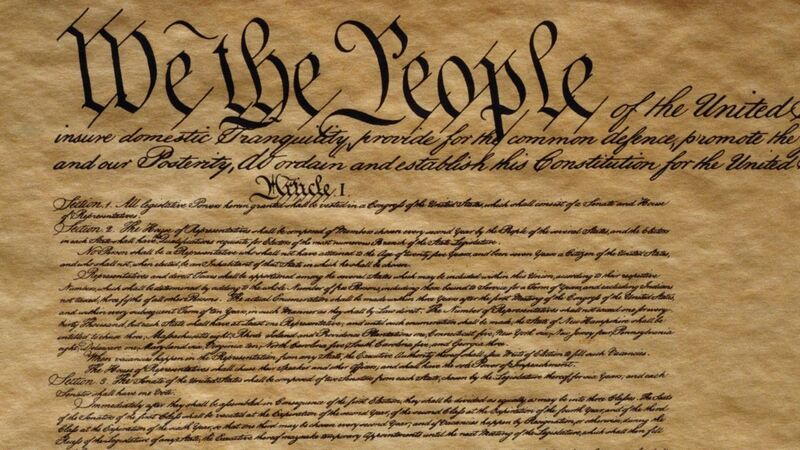The U.S. Constitution has been amended 27 times since its founding, but not since 1992.
By Hina Suzuki, THE BADGER PROJECT
If you agree that corporations should not have the same rights as people, and money is not protected speech, this amendment is for you.
The “We the People” Amendment would specify that the rights laid out in the U.S. Constitution are for individual human beings and not for groups of people, such as corporations and labor unions. It also limits political spending and requires all political contributions and expenditures to be publicly disclosed.
Wisconsin United to Amend, which describes itself as a grassroots, cross-partisan citizens group, has been working for its passage in the state since its founding in 2010.
This amendment aims to “get big money out of politics” and abolish corporate personhood, said George Penn, the group’s outreach coordinator.
Wisconsin United to Amend is a local affiliate of Move to Amend, a national, nonpartisan organization advocating across the country for the “We the People” Amendment. The group was founded in 2010.
The movement originates from opposition to decisions by the U.S. Supreme Court, Penn said.
Since the 1886 decision in Santa Clara County v. Southern Pacific Railroad Co., the court has been granting constitutional rights to “artificial entities” such as labor unions and corporations, Penn noted. The 1976 Buckley v. Valeo decision ruled that political spending is free speech, and in the 2010 case, Citizens United v. Federal Election Commission, Supreme Court justices ruled that limiting the political spending of corporations and labor unions is a violation of the First Amendment.
“Jefferson and Madison predicted that corporations and the super-rich would eventually take over this country, and did not want corporations to be people,” Penn said. “It’s a corruption of the Supreme Court to make those rulings.”

But to make that change, the U.S. Consitution must be amended, something that has happened 27 times, but not since 1992.
“The amendment process is hard - and by design,” said Nilesh Sinha, a visiting research fellow in political science at UW–Eau Claire, in an email to The Badger Project.
It takes a two-thirds majority vote in both the House of Representatives and the Senate or a convention called by at least two-thirds of the 50 state legislatures. Then, the amendment must be ratified, or approved, by three-fourths of the state legislatures.
The likelihood of the “We the People” Amendment being ratified is exceedingly low, Sinha said.
“While there have been amendments on issues where there has been overwhelming consensus, the divestiture of the constitutional rights of corporations and campaign finance reform do not happen to be issues that will generate this level of consensus,” he said.

CLICK TO DONATE!
But the amendment is slowly making progress, as 22 states have supported it. Wisconsin is not one of those states.
The state of Wisconsin’s refusal to approve the amendment may be due to what Penn perceives as an “anti-democratic” state government.
“They do not want it and they do not care,” Penn said.

Wisconsin has some of the most gerrymandered political districts for its state legislature in the country, experts say, shielding the Republican majority who drew the maps from voters and public opinion.
“We’re just building the movement at this point until we have a state legislature that will listen,” Penn said.
He said that more than 170 local governments in Wisconsin have called for the amendment since 2011, through Wisconsin United to Amend's efforts to inform and encourage Wisconsinites to talk to their local government about the amendment.
“Our goal is to keep up the pressure and keep building the movement until our state government is ready to make the call,” Penn said.
Across the country, more than 800 local governments have signaled support for the amendment, he noted.
In Congress, the “We the People” Amendment was first introduced by former Rep. Rick Nolan (D-Minnesota) in 2013. Since then, the bill has been proposed repeatedly. Rep. Pramila Jayapal (D-Washington), the head of the Progressive Caucus, introduced it again in March 2023.
Aside from the high bar in passing any constitutional amendment in the U.S., the effort faces even more challenges, Sinha noted.
The recognition of corporate personhood that gives corporations the First Amendment speech protections fuels opposition to the "We the People" amendment in Congress, he said. In addition, the amendment, at least on the surface, appears to be anti-businesses, he said.
That could put it in the crosshairs of powerful and deep-pocketed opponents.
“When corporations contribute to a campaign, they are expressing a political preference and engaging in advocacy,” Sinha said. “This speech of corporations ought to be protected.”
The Badger Project is a nonpartisan, citizen-supported journalism nonprofit in Wisconsin.
ADVERTISEMENT

BADGER STRIPES
This article first appeared on The Badger Project and is republished here under a Creative Commons license.
This story was funded in part by a grant from the Jon and Martha Hove Donor Advised Fund at the Community Foundation of Dunn County.



Add new comment